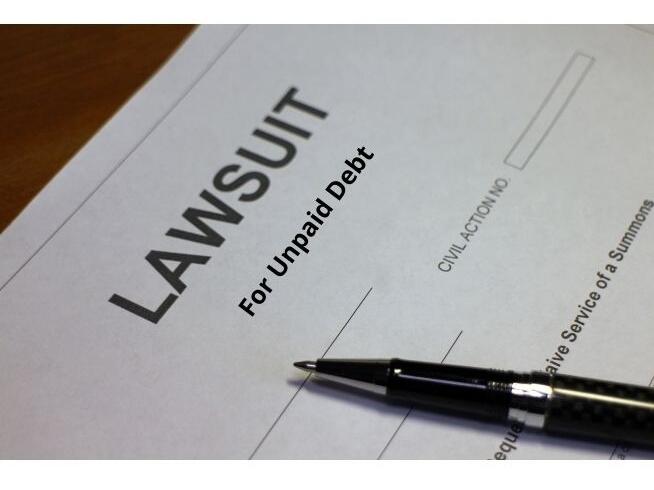Debt collectors are a common component in the process of recovering unsecured debt. Many debt collectors buy past due debt and for pennies on the dollar and then try to collect on that debt through lawsuits and other aggressive tactics. A common question we hear from people across the country involves when to expect a debt collector to sue me, and the minimum amount of money they will take me to court for. The reasons for this question are clear, as no one wants to be sued by a creditor or debt collection agency. That’s why you must find precisely when a debt collector will sue and the minimum amount they will target!
When Can A Debt Collector Sue Me For Unpaid Debts?
Several reasons trigger the decision of a debt collector to sue. One or more of these reasons have likely prompted your creditor to take you in front of a judge:
– You failed to respond when they proposed a payment plan, sent past due notices in the mail, and continued collecting calls.
– You’ve ignored any legal papers filed by the law firm hired by your creditor.
– You’ve refused to negotiate a repayment agreement with your creditor.
In most cases, if you refuse what could be considered a reasonable offer from your creditor, expect them to file suit against you to recover what is owed plus interest. The timeframe for your original creditor or debt collector to sue you depends on your state.
– In Alabama, debt collectors must sue within five years of the date they purchased your account.
Different states have different statutes of limitations and rules for what a debt collector can and cannot do when it comes to suing you. That’s why you are recommended to contact an attorney or a debt settlement attorney if you find yourself in this position and don’t know what to do next. They will be able to give you legal advice and information about what options are at your disposal concerning what outcome would be best for both parties involved in the lawsuit process. Debt settlement is a viable option to hold off or at least mitigate the time a creditor or debt collector has to initiate a lawsuit.
What Is the Minimum Amount A Debt Collector Will Sue Me For?
Remember that any legitimate debt collector can sue you for a specific amount owed. Technically, this can be for amounts under $100. But the minimum amount a debt collector will sue you for is typically around $750. Sometimes, a small lender or creditor will take you to court for amounts much lower than this. But it would be best to consider the time and expenses associated with serving someone with legal papers and eventually taking them to court.
The lesser of what is owed or what the statute of limitations allows, not what is in collections now. This means that if there was $7,000 on your account when it was sold to the debt collection agency, they could only sue you for what you originally owed. Not what might be on your account currently because of interest or late fees added by another company. This can make a big difference between some past due debts that can accrue thousands of dollars in interest and other charges. Your original creditor has the right to file suit within your state’s statute of limitations, so they may try to convince you that what you owe has increased beyond what was sold to the debt collector, but that isn’t true!
Again, the bottom line is that if a debt collection agency wants to sue you for a legitimate debt, they definitely can as long as they follow the relevant state laws and what is legally permissible.
What happens if the debt you are being sued for was sold to another company for more than its worth? You might be able to get out of the lawsuit by providing proof that what they bought or what they bought it for wasn’t worth what was suggested on paper. This is why some people will try to negotiate a settlement by offering less than what is owed to clear their name. Contact a lawyer specializing in debt relief or consider some debt settlement alternatives to avoid the hassle of dealing with a 3rd party bill collector. The primary goal here is not to create new numbers, but to validate your original balance.
Avoid Being Sued By A Debt Collector For A Small Amount
You can always avoid a lawsuit by a debt collector, and that’s even truer for issues that involve small amounts of $1,000 or less. Anytime you owe what is considered an unsecured debt for a small amount that cannot be collected in court, the creditor or debt collector will only send out a letter to notify you of what they can and will do if you fail to pay back what is owed.
As soon as a lawsuit begins, interest rates on what is owed increase. Regarding credit card debt, your interest rate could jump from what was once a reasonable amount up to 30% or more! This means that what you owe could balloon even if a judge agrees with what you owe. In many cases, options at your disposal include finding a legitimate debt settlement company or negotiating the debt independently. Do what you can to avoid a scenario that involves a debt collector suing you for a small amount. These companies want to avoid a costly lawsuit and will likely work with you to negotiate a settlement or set up an alternative payment plan!
